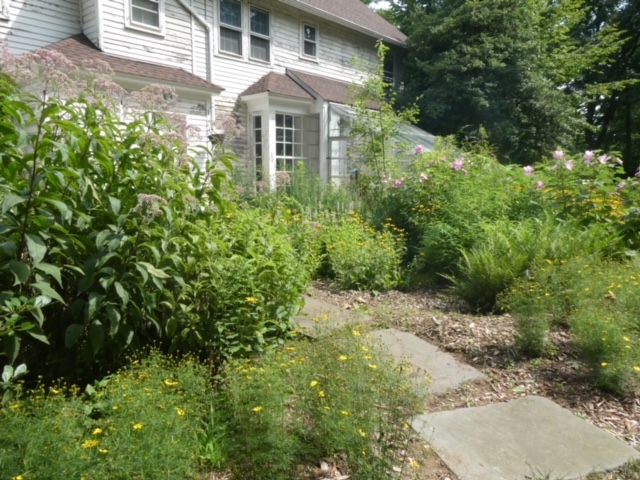Our Services > Sustainability Programs > Home Sustainability Workshops > Home Sustainability Workshops
2023 Home Sustainability Workshops

The Town of North Hempstead offers educational workshops in Sustainable Yard Care, Rain Gardens and Gardening with Native Plants.
Scroll down to learn more about each workshop and to register.
Sustainable Yard Care
This workshop will introduce you to a variety of ways you can make your home yard more environmentally friendly including composting, using a rain barrel, saving water, creating wildlife habitat, reducing water pollution, using alternatives to pesticides, properly applying fertilizer, and more. The workshop will help you make your yard look great while also being healthy for the environment!
This workshop has concluded. You can watch the recording HERE.
Native Plant Gardening
Native plants are those that historically and naturally occur in an area, tolerate the climate of the local environment and have evolved with the wildlife in that area, like pollinators. Gardening with plants native to Long Island is beneficial for many reasons including:
- They require less maintenance, including fertilizers, pesticides and watering
- They provide food and habitat to native birds, mammals, and pollinators, like the monarch butterfly, which is in decline (click here to learn about the Town's efforts to help monarchs and here to learn about protecting all pollinators)
- They help to reduce flooding due to extensive root systems that take up large quantities of water
- These plants can also absorb more air pollutants and carbon dioxide than traditional turf grasses
- Many have beautiful flowers, colorful fruits and seeds and offer vivid seasonal color changes
- Click here for a list of native plants appropriate for Long Island landscapes
This workshop has concluded. You can watch the recording HERE.
Rain Gardens
Rain gardens are shallow depressions in the landscape that are used to capture stormwater from a gutter downspout or sloped area. Rain gardens have many benefits such as:
- Pollution reduction: they filter out contaminants that rainwater can pick up, such as pesticides, oil, fertilizers and animal droppings, which can migrate into our nearby bays and harbors
- Aquifer replenishment: they allow water to absorb into the ground, which helps to recharge Long Island's groundwater sources where all of our drinking water comes from
- Wildlife Habitat: A rain garden's use of native plants (click here for a list of native plants appropriate for Long Island landscapes) can provide food and shelter for birds and pollinators, like monarch butterflies (click here to learn about the Town's efforts to help monarchs and here to learn about protecting all pollinators)
This website is also helpful in learning about rain gardens and provides steps to creating them: Rain Gardens a Design Guide by UConn
This workshop has concluded. You can watch the recording HERE.